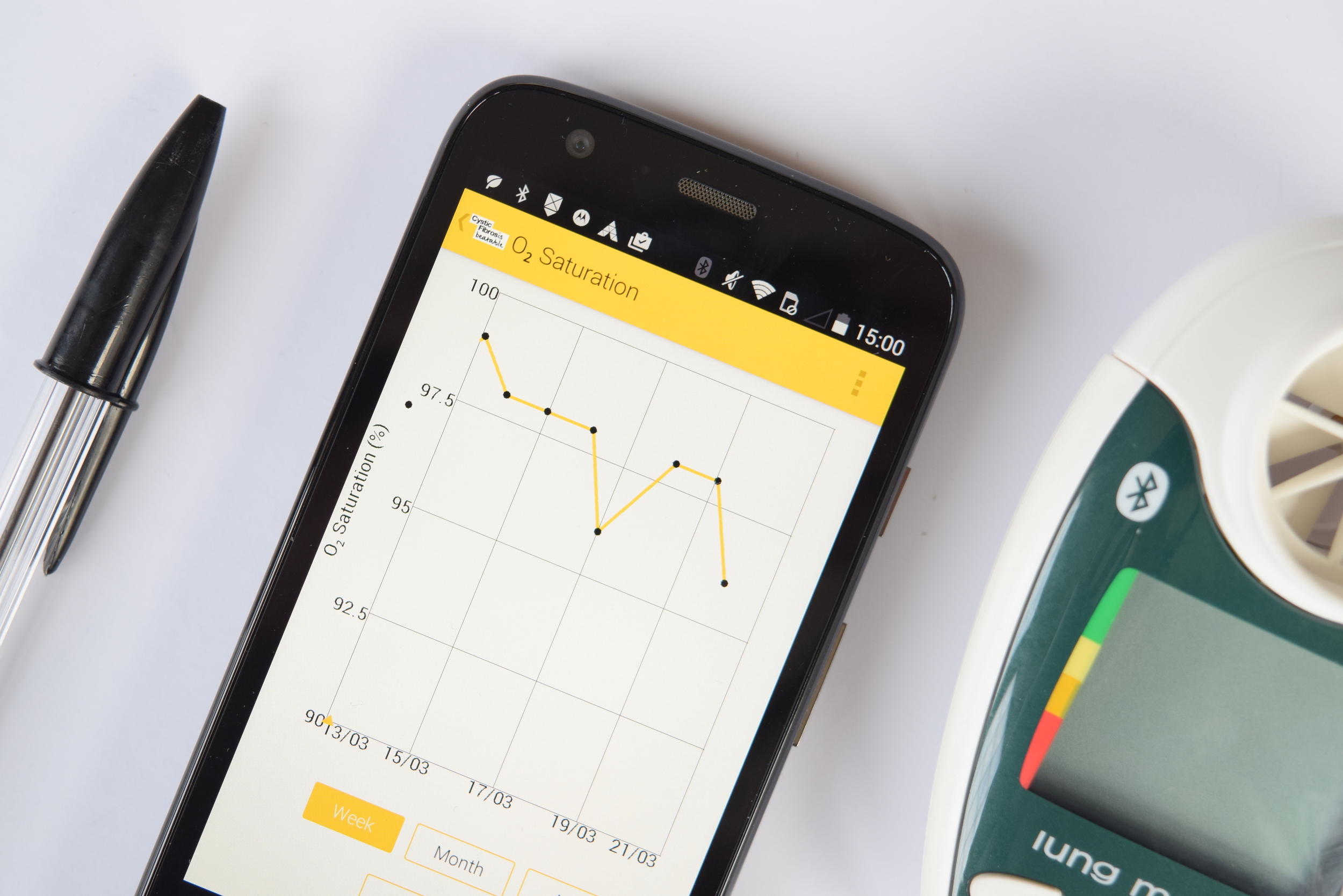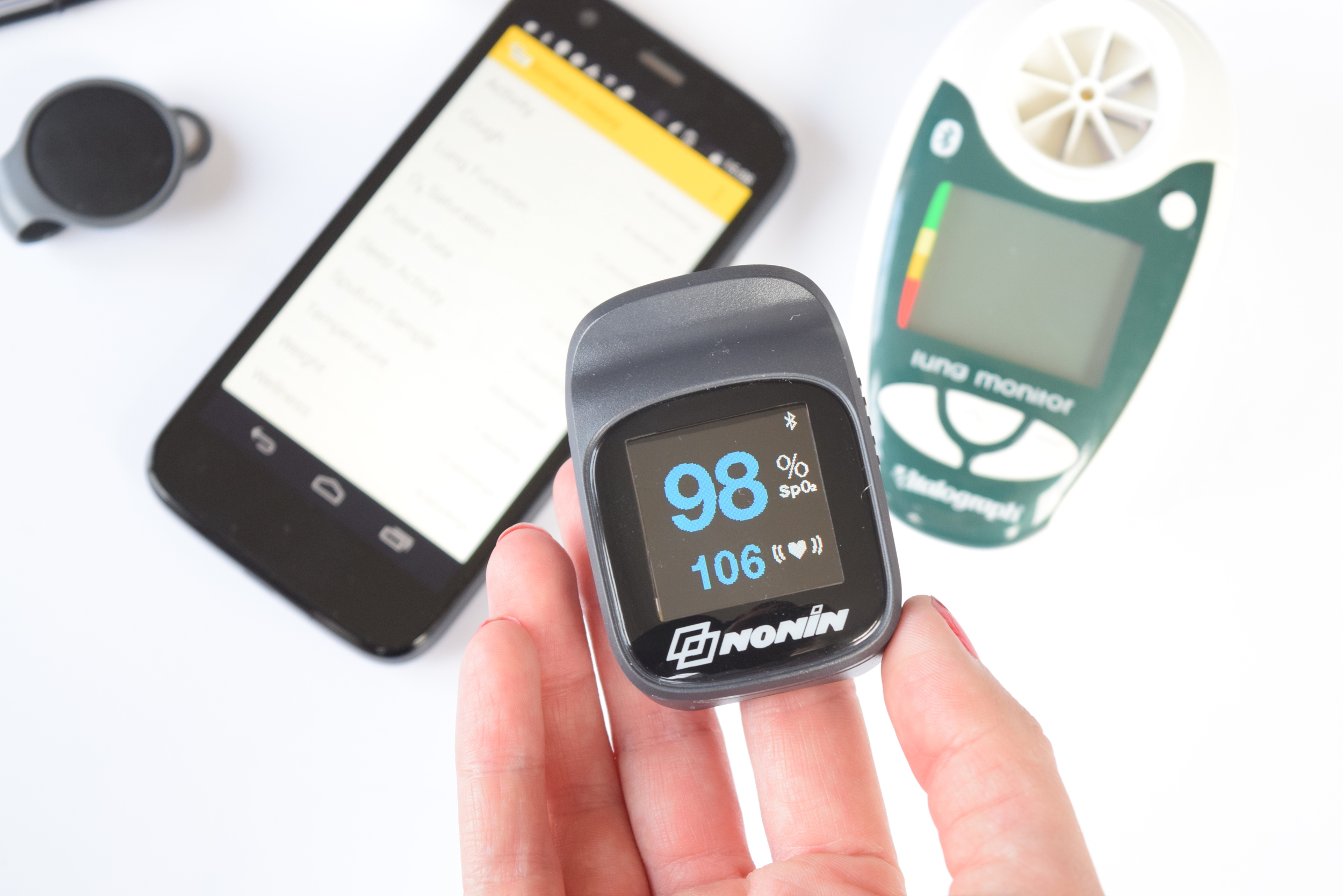Using Data to Monitor Your Health: What I Learnt From A Medical Trial
It’s no secret that I’m fascinated by health monitoring and the increasingly amazing options for tracking our health and fitness that are coming about thanks to new tech.
Over two and a half years ago, I watched an episode of BBC Horizon called Monitor Me, which I think was a cataylst for my curiosity.
Since then, I have tried things like tracking my nutrient intake with MyFitnessPal and recording my activity and workouts with fitness trackers, but as I mentioned in my article on wearable tech, I struggle to find the value in using any devices over an extended period of time.
I think part of the reason that I was so fascinated by Monitor Me, was that everyone featured on the show was recording their data for really specific purposes; they knew what they were looking for in their data and they had a specific outcome in mind, be it weight-loss or better sporting performance. Plus, they were working with professionals in their field.
This kind of structure is something that I’ve lacked so far when toying with health and fitness tech, simply because I haven’t needed it.
Now, that has changed.
I’ve pushed my interest a little further and got involved with a clinical trial to see if self-monitoring can have a direct, positive effect on health.
I’m really pleased that medical professionals are starting to look seriously and realistically at how self-monitoring can be beneficial, and I’m excited to have a unique insight into what devices and data the experts think is worth our time and money.
I wanted to tell you a little more about it so that you can get an idea of the kind of devices and data, beyond the most commercial wearables and apps, that can be used to manage your wellbeing. Plus, from my experience so far, I have some tips for making the data as meaningful to you as possible.
The Trial
I was invited to participate in a home monitoring trial because I have Cystic Fibrosis, a medical condition that can cause, among other things, increased likelihood and severity of chest infections.
The trial is designed to use simple health and fitness monitoring devices to help predict respiratory issues before symptoms appear.
The study requires complete adherence to the monitoring for a total of six months, which goes to show how committed you have to be to self-monitoring if you want to truly get insight and value from it!
Therefore, at this stage, the trial is predominantly to see whether participants can actually adhere to the study protocol. To be able to make accurate predictions about health and wellbeing, it is vital that data is measured consistently so that trends can be predicted. If participants fail to comply with this aspect of the study, any data that is collected won’t be nearly as useful.
Beyond simply seeing if people can actually commit to taking daily measurements, the study hopes to identify predictive signals for early onset of illness and identify whether any treatments given are effective.
The Monitoring
For six months, I will be recording daily biometrics including:
- Pulse rate and oxygen saturation
- Lung function
- Weight
- Physical activity
- Wellness scores
The data from these measurements are then fed via bluetooth to a mobile-app created specifically for the purpose of this study. It’s really simple and takes far less time than I thought it would each day!
Pulse Rate + Oxygen Saturation
I use a little piece of equipment called a pulse oximeter to measure my heart rate and oxygen saturation.
In a similar way to some fitness trackers and phone apps (such as the Instant Heart Rate app), the device uses light shone through your finger to detect your pulse rate as well as how much oxygen is in your blood based on the way the light passes through your finger.
Mainly, measuring oxygen saturation is useful for people with respiratory conditions, but monitoring your resting heart rate can be useful for anyone.
As well as indicating fitness, heart rate can also be affected by dehydration, on-setting illness and insufficient rest. So in theory, your heart rate could predict how you will feel in a few hours or even days before you could!
Lung Function
Usually I only have my lung function measured when I visit my CF clinic for routine check ups, but I’m excited to have my own spirometer at home to keep check on this on a daily basis.
Typically, my lung function tests will measure FVC (Forced Vital Capacity), which is a measurement of lung size based on the volume of air in the lungs that can be exhaled following a deep inhalation, and FEV1 (Forced Expiratory Volume in 1 second), which is the amount of air that you are capable of exhaling with force in the first second of breathing out.
Lung function measurements can indicate fitness level (they’re typically higher, the fitter you are) and indicate any problems like infection, inflammation or obstruction in the lungs if your results come up low.
I think that having the ability to measure my lung function daily will help to motivate me to push myself harder during workouts. I’d love to see my lung function improve and see that gruelling cardio sessions are worthwhile...
Weight
I'm using a Pally Smart Scale every morning to take my weight. I’ve never used a home scale before as this isn’t something that I find particularly beneficial (I can fluctuate up to two kilos depending on how much I have eaten and drunk each day!), but it’s an important part of the study.
I’m interested to see if any of my fluctuations in weight correspond with changes in any of my other biometrics.
Physical Activity
During the study, my activity is tracked using a Misfit Flash fitness tracker.
Simply, it counts my steps. As I’ve spoken about before, this measure on it’s own might not be incredibly useful, but when combined with the other biometrics, correlations can be made.
For example, on days that you are more active, you may record a better sleep score or a better wellness score. Observing this relationship might help you to make better decisions for your wellbeing in the future.
For me, I’d be interested to see if a change in activity such as being more sedentary than usual (perhaps I spent a few extra hours in the office) would negatively affect my lung function.
Wellness Scores
Each day, the app asks me to rate my wellness on a scale of 1 - 10. I’m also asked to give a sleep score (ranging from very good to very bad) and a cough score (on a scale of 1 - 10, remembering that this is a respiratory study).
I’ve found it really interesting to give myself a wellness score each day. At first, I felt as if I was just picking an arbitrary number, but over time, I’ve realised that I’ve become more in tune with the things that may be affecting my score.
Although it’s not required by the study, this actually inspired me to buy myself a little ‘symptom’ diary. In the diary, I simply note down things that may affect my wellness and any symptoms that I have, so that I can reflect on them at a later date.
Temperature
While this isn’t a mandatory input for the study (from what I understand, they were unable to source simple-to-use thermometers with bluetooth connectivity), there is an option to input your temperature within the trial app.
I’ve previously written about basal body temperature as an indicator of hormone levels so I know how insightful body temperature readings can be.
Beyond indicating hormone fluctuations though, your body temperature can help to detect illness or indicate that treatment for a condition is not working successfully. I’d like to try to include a temperature reading every day for my own interest, and see if it could predict if my immune system is struggling at all!
How To Get The Most Out Of Your Health + Fitness Monitors
Based on what I’ve already told you about this study in particular, you might have picked up some ideas of how or what you could measure to keep a better track of your health. But here are just a few additional tips for making your data as meaningful as possible:
Be Observant + Record Your Symptoms
As I mentioned, this clinical trial inspired me to start writing down my symptoms on paper. Previously, I had thought a mental note was enough. It wasn’t. You might think (as I often do) that you will remember what you did or how you felt at a certain point in time, but a few days or weeks down the line when you might experience certain symptoms again, you will struggle to draw comparisons from memory alone.
While it might not seem like such a sexy option compared to reaching for a sleek new piece of technology, physically writing down your own observations is simply the most effective way. No tech (yet!) is able to detect your mood, sense pain or discomfort, or identify changes in your habits quite like you can yourself.
Learn to record the information that your body is freely giving you; it’s valuable!
Occurrences that you might like to note down:
- Significant differences in food that you have eaten (for example, I may note down if I have eaten a lot of gluten- or dairy-containing foods on a certain day - this is significant for me as I don’t tolerate large amount of gluten or casein very well at all)
- New supplements you have started taking
- Medication you have taken
- Life events (such as stressful situations or trips)
- Change of your regular schedule (this could be different working hours or changing sleep habits)
Symptoms that you might like to note down:
- Mood
- Changes in sleep pattern and quality
- Digestive issues (bloating, wind, toilet habits, heartburn)
- Energy levels
- Skin issues
- Other feelings of discomfort or illness
Track More Than One Measurement
As you can gather from the trial that I am involved in, many different measurements can be related. The more measurements you take, the bigger and clearer the picture that you create.
Tracking more than one variable means that you might be able to identify trends, or cause and effect. Only by doing this, can you start to manipulate variables to improve your health and wellbeing.
There is little good in recording symptoms without also having some insight into the cause. On the flipside, there’s little point in noting down when you have tried new supplements or had a stressful day if you don’t then listen to your body to determine what impact these things have had on you.
For example, there is no use in keeping a food diary if you don’t record your symptoms to see how those foods affect you, or you don’t take body measurements to see if your body shape is changing in the way you want it to.
Be Consistent With Your Biometric Recordings
Based on the length of this study and the requirement to record data daily, it’s obvious that experts place high importance on consistency.
It can take a long time to gather enough data to establish your baseline measurements (such as what sleep pattern is normal for you, or what your average resting heart rate is) before you can even begin to recognise anomalies that might be medically meaningful.
Try to make your recordings a habit by taking them at the same time every day.
If you found it interesting to know about this clinical trial that I’m involved in, or if you have any questions, let me know!
Do you monitor any of your own biometrics? What benefits have you found? Leave me a comment below or tweet me @theblondeethos.



